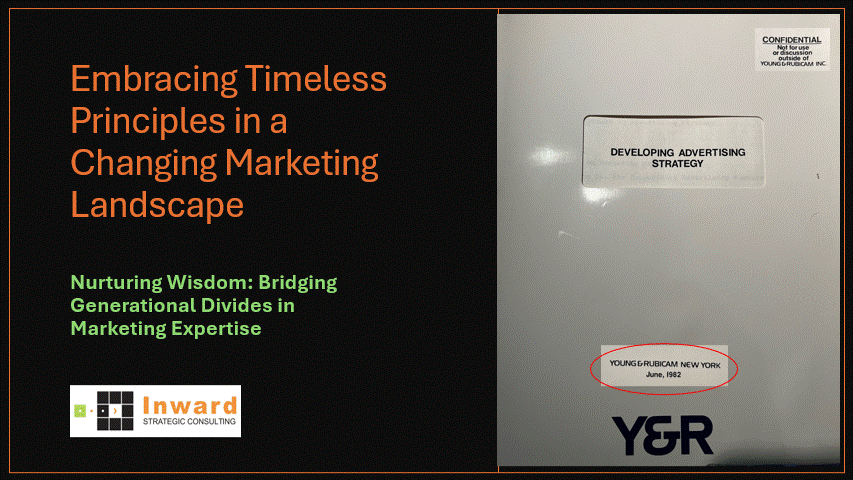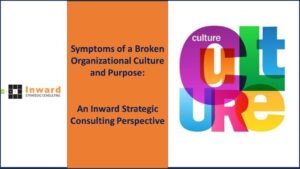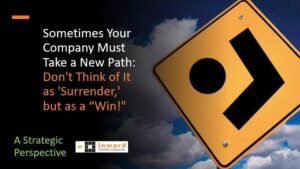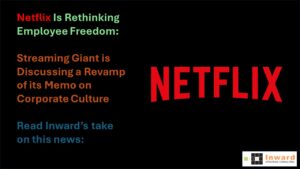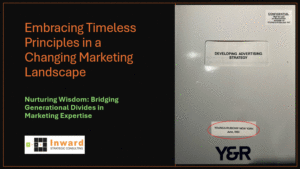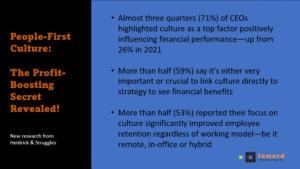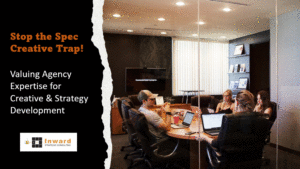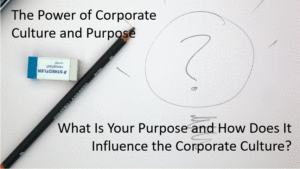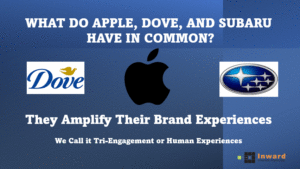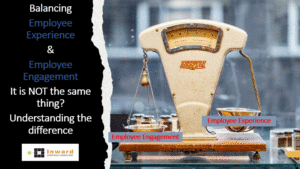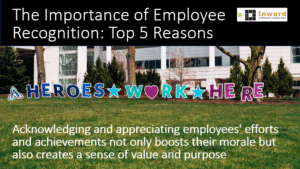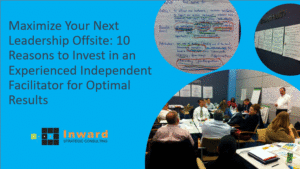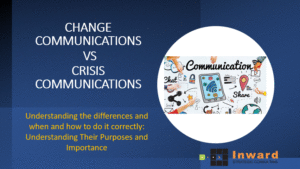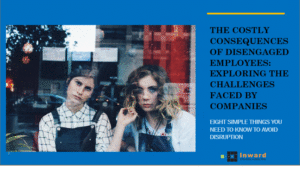In the dynamic realm of advertising and marketing, it’s easy to get swept up in the whirlwind of evolving tactics and emerging digital technology platforms. Yet, amidst the rapid shifts in technology and consumer behavior, it’s crucial to remember the enduring principles that underpin effective marketing strategies.
The evolution of the advertising industry over the past four decades has been marked by seismic changes. From the advent of social media to the rise of influencer marketing and streaming platforms, the landscape has transformed profoundly. Audience segmentation has become increasingly nuanced, reflecting shifting demographics and evolving consumer preferences. Strong experience perspectives make a difference.
However, amidst these changes, it’s imperative to recognize that the essence of great marketing lies in timeless fundamentals. Concepts such as message architecture, customer insights, prospect profiles, strategic selection, outline alternatives, and testing, and creative brief breakthroughs remain as relevant today as they were decades ago. Successful campaigns are built upon this foundation; it’s not just about promoting products with influencers on TikTok.
I’ve had some very interesting conversations with ad agency leaders recently. They emphasized the significance and necessity of thorough ad strategy planning. These conversations have highlighted a concerning trend where many inexperienced leaders of pure digital agencies prioritize tactics over brand strategy, rushing into execution without first establishing a solid strategic framework, like a new shiny object. This oversight can lead to fragmented campaigns and missed opportunities to truly connect with the right audience, conveying the right message, at the right time, and over a long period of time.
These traditional ad agency leaders emphasize that while tactics may evolve and adapt to new mediums, the core principles of experienced marketing planning remain steadfast. Understanding the target audience, defining clear objectives, conducting thorough market research, and crafting compelling messaging are just a few examples of timeless practices that should form the basis of any marketing strategy.
I am often nostalgic, reminiscing about my early days spent at Young and Rubicam, particularly their formative account management training program under the guidance of Nick Rudd. I still cherish the documentation and manuals and practice sessions from June 1982, reminders of an intensive four-week training regimen that shaped account executives from around the world in developing advertising strategies. Everyone at Y&R and all the specialty discipline subsidiaries shared the same processes, frameworks, understanding, and language on a worldwide level.
The program delved into the intricacies of marketing objectives and strategies, imparting knowledge on competitive analysis covering product class definition, prospect profiling, message arguments, and media spending highlights. A cornerstone of the Y&R system was the strategy selection outline (SSO) and the WHO, WHAT, WHAT document, meticulously designed to scrutinize various options and positions, facilitating the selection process among them.
In essence, the SSO outlined, reviewed, and weighed the merits of at least five alternative strategies/positions, each with its unique targets, prospects, messages, and rationale. We would have in-depth client discussions, deliberations and reviews. Truth be told, many of the fundamentals imbibed during those training days still find relevance in my client interactions today.
One critical aspect often overlooked in the digital age is the importance of positioning and differentiation. Brands must stand out in a crowded marketplace, necessitating a deep understanding of consumer psychographics and strategic positioning. It isn’t just about getting attention. This requires thoughtful planning, and weighing choices, not merely spur-of-the-moment decisions. For instance, I recently conducted an in-depth psychographic analysis for a 100-year-old apparel brand, exploring how a new GEN Z audience segments could find the brand relevant, akin to the iconic “Not your father’s Oldsmobile” campaign. (How many Gen Z’s even know about that classic ad campaign case history?).
Moreover, compelling message architecture is paramount in driving brand affinity and loyalty. Volvo’s “The E.V.A. Initiative” campaign is another prime example. By highlighting safety and innovation, Volvo positioned itself as a brand committed to social responsibility. This resonated deeply with younger consumers, fostering long-term brand loyalty.
Despite the proliferation of digital channels, great marketing lies in delivering seamless brand experiences across touchpoints. This involves aligning internal and external elements cohesively to reinforce the brand’s unique selling proposition. Relationships with audiences, vendors, and retailers play a crucial role in this endeavor.
From a strategic brand consulting perspective, today’s ad/pr agency executives must balance new technologies with timeless principles. Microsoft’s strategic embrace of artificial intelligence (AI) exemplifies this approach. Through Azure AI and acquisitions like Semantic Machines and Nuance Communications, Microsoft enhances productivity and delivers personalized experiences while driving social impact through initiatives like AI for Accessibility.
As the marketing landscape evolves, it’s essential to remain grounded in enduring principles. Experienced ad/pr professionals possess invaluable insights that, when combined with modern tactics, can drive success in the digital age. Collaboration between generations, experienced practitioners, and new digital technological talent fosters a holistic approach that marries timeless wisdom with cutting-edge strategies.
For guidance on navigating the evolving marketing landscape and maximizing the effectiveness of your campaigns, reach out to me. I am confident I can teach you a thing or two about planning that you may have not considered. Hey, I might even pull out my Y&R SSO manual and share it with you. Let’s work together to ensure your brand stays ahead of the curve and connects with audiences in meaningful ways.


